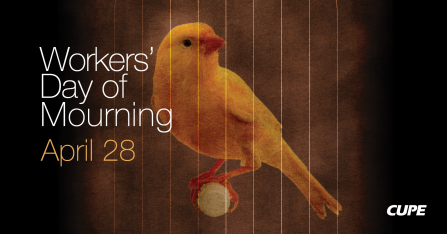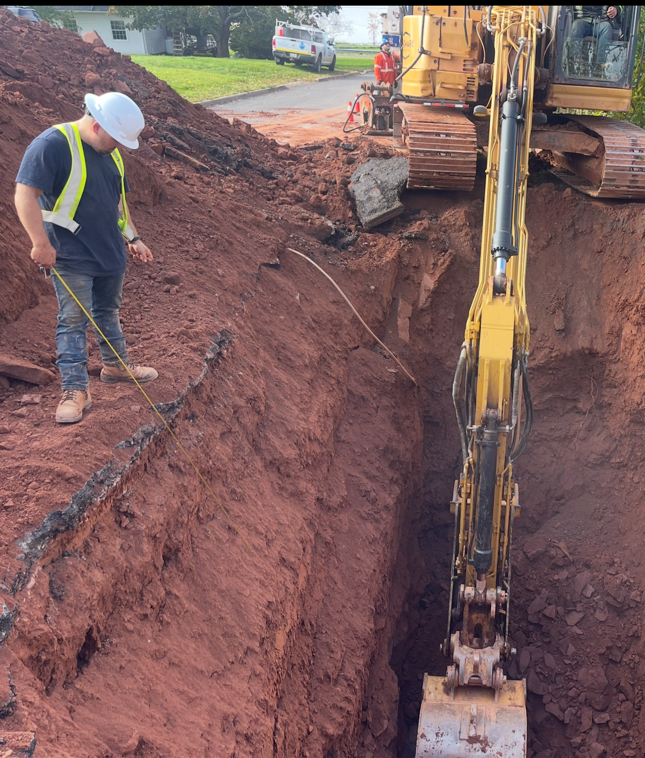| In light of the the recent heat warnings issued by Environment Canada, it is important for workers to take extra precautions to protect themselves and their coworkers from the effects of heat stress.
What is Heat Stress?
Heat stress is a buildup of heat in the body to the point where a worker cannot maintain a normal body temperature. When workers can’t cool themselves by sweating, serious heat illness can occur. Working in hot temperatures is a health and safety hazard and can lead to heat stroke which can be fatal.
Occupational Health & Safety Act
Because of potentially serious health effects, OHS legislation requires the protection of workers from heat stress. Therefore, workers exposed to work conditions that may lead to heat illnesses must be adequately protected. Your Employer is required to implement adequate control measures to provide the most effective protection against heat stress.
Control Measures
To prevent heat stress employers must ensure:
· There is adequate ventilation
· Provide fans for cooling unless the temperature reaches 35 Celsius at which point fans can do more harm than good
· There are shaded areas available when working outside
· Cool water is available to workers. Employees should be drinking at least 1 cup of water every 20 minutes even if not thirsty.
· There are increased breaks with short work cycles (see chart below). Get to cool areas during breaks
· More physically demanding work is done in the early morning or evening
· Equipment that generates heat and is not being used is turned off
· Medical help is called if a worker feels sick, dizzy, nauseated, has prickly skin, feels week or has sudden vision problems
Rest Periods
During periods of elevated temperatures, the frequency and duration of rest periods needs to be increased. To determine the duration of a rest period please refer to the tables below. First get the Humidex (forecasted or current) for the general area. This can be obtained from Environment Canada’s website or another reliable source of weather information.
It should be noted that Humidex is preferred over temperature because it takes into account the effects of humidity. Therefore, Table 2 should only be used when Humidex is not available or below 35.
Table 1
| Humidex Range |
Minimum Rest Period Every Hour |
| Humidex 35 to 37 |
Provide 10 minutes of rest |
| Humidex 38 to 40* |
Provide 20 minutes of rest |
| Humidex 41 to 43* |
Provide 30 minutes of rest |
| Humidex 44 and over* |
Provide continuous relief & continuous monitoring of workers, or redirect to other duties, or cease work activities |
Table 2
| Temperature Range |
Minimum Rest Period Every Hour |
| 30 to 31 (with humidity <60%) |
Provide 10 minutes of rest |
| 32 to 33 (with humidity <50%)* |
Provide 20 minutes of rest |
| 34 to 35 (with humidity <50%)* |
Provide 30 minutes of rest |
| 36 and over* |
Provide continuous relief & continuous monitoring of workers, or redirect to other duties, or cease work activities |
* Remind workers to drink at least 1 cup of water every 20 minutes
|
|
Étant donné les récents avertissements de chaleur émis par Environnement Canada, il est important que les travailleurs prennent des précautions supplémentaires pour se protéger et protéger leurs collègues contre les effets du stress thermique.
Qu’est-ce que le stress thermique ?
Le stress thermique est une accumulation de chaleur dans le corps au point où un travailleur ne peut pas maintenir une température corporelle normale. Lorsque les travailleurs ne peuvent pas se rafraîchir en transpirant, ils s’exposent a de graves troubles dus à la chaleur. Le travail à des températures élevées constitue un risque pour la santé et la sécurité et peut entraîner un coup de chaleur qui peut être mortel.
Loi sur l’hygiène et la sécurité au travail
En raison de leurs effets potentiellement graves sur la santé, la loi exige la protection des travailleurs contre le stress thermique. Par conséquent, les travailleurs exposés à des conditions de travail pouvant entraîner des maladies liées à la chaleur doivent être protégés adéquatement. Votre employeur doit mettre en œuvre des mesures de contrôle adéquates pour assurer la protection la plus efficace contre le stress thermique.
Mesures de contrôle
Afin d’éviter le stress thermique, l’employeur doit :
· assurer une ventilation adéquate
· fournir des ventilateurs pour rafraîchir l’air, a moins que la température atteigne plus de 35 degrés Celsius, auquel cas les ventilateurs sont plus nuisibles qu’utiles
· prévoir des endroits ombragés pour le travail à l’extérieur
· fournir de l’eau en quantité suffisante aux travailleurs. Les travailleurs devraient consommer au moins une tasse d’eau a chaque 20 minutes
· accorder des pauses supplémentaires et prévoir des cycles de travail courts (voir tableaux ci-dessous) ainsi que des endroits frais pour les pauses.
· faire exécuter le travail physiquement plus exigeant tôt le matin ou en soirée
· les équipements qui génèrent de la chaleur et ne sont pas utilisés sont éteints
· l’aide médicale est appelée si un travailleur se sent malade, étourdi, nauséeux, a la peau piquante, se sent mal ou a des problèmes de vision soudains
Périodes de repos
Pendant les périodes de températures élevées, la fréquence et la durée des périodes de repos doivent être augmentées. Pour déterminer la durée d’une période de repos, veuillez vous référer au tableaux ci-dessous. Obtenez d’abord l’humidex (prévu ou actuel) pour la zone générale. Vous pouvez l’obtenir sur le site Web d’Environnement Canada ou auprès d’une autre source fiable d’information météorologique.
Il est à noter que l’humidex est préféré à la température car il tient compte des effets de l’humidité. Par conséquent, le tableau 2 ne doit être utilisé que lorsque l’humidex n’est pas disponible ou qu’il est inférieur à 35.
Tableau 1
| Humidex |
Période de repos minimale par heure |
| Humidex de 35 à 37 |
Prévoir 10 minutes de repos |
| Humidex 38 à 40* |
Prévoir 20 minutes de repos |
| Humidex 41 à 43* |
Prévoir 30 minutes de repos |
| Humidex 44 et plus* |
Fournir une relève et une surveillance continue des travailleurs, ou les rediriger vers d’autres tâches, ou cesser leurs activités de travail |
Tableau 2
| Température |
Période de repos minimale par heure |
| 30 à 31 (avec humidité <60%) |
Prévoir 10 minutes de repos |
| 32 à 33 (avec humidité <50%)* |
Prévoir 20 minutes de repos |
| 34 à 35 (avec humidité <50%)* |
Prévoir 30 minutes de repos |
| 36 et plus* |
Fournir une relève et une surveillance continue des travailleurs, ou les rediriger vers d’autres tâches, ou cesser leurs activités de travail |
* Rappelez aux travailleurs de boire au moins 1 tasse d’eau toutes les 20 minutes
|









